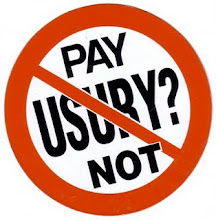By Tom J. Kennedy
On my way back to Ottawa, Ontario, Canada after spending three weeks in the Philippines, I spent part of three days in Hong Kong, with my son, Jonathan. While there, we stayed at the Wharney Guang Dong Hotel. The room was clean and tidy but very small - the way most living quarters are in Hong Kong. In general, prices in Hong Kong are much more expensive than in the Philippines. Hong Kong, with its population of 7 million, is one of the densest populated areas on planet earth.
While there we enjoyed food and drinks at Carnegie's and a Mexican Restaurtant called Agave. And we experienced a ride on the Peak Tram.
My most memorable food experience was at Cochrane’s in the Soho area of Hong Kong. My son, Jonathan and myself selected the Cochrane’s Bar and Grill on Tuesday, May 1st, 2012 as the ideal place in Soho, Hong Kong to have our lunch. We were served by Ana Sajota, a very pleasant Filipiono waitress, who doubled as Assistant Manager. We had just arrived in Honk Kogn from the Philippines, so we had a very pleasant conversation with Ana as took our orders and served us. And the food was excellent.
I invited Ana to review the recent posts at my blog that were directly related to economic issues in the Philippines - and share the links with her friends in Hong Kong and back in the Philippines. Ana is one of the more than 10 million Filipinos that are working outside the Philippines - in places like Hong Kong, the Middle East, Europe and in North America. Most of these Filipino workers are forced to leave their families and work in a foreign country and send money back home to their poor families in the Philippines.
While dining, I browsed a copy of HK Magazine and four Letters under the title “Waste Not, Want Not” caught my eye. These letters made an impact on me as I had just spent three weeks in the Philippines where I had witnessed extreme poverty. There is probably poverty in every country, but I can attest that it is not so much in your face in Canada as it is in the Philippines. I will share these letters here and perhaps readers will learn something they didn’t know they didn’t know.
The first letter was penned by Reneta Lopez:
“It’s admirable for Green Hong Kong and the Foodlink Foundation to do their bit to save discarded food: “Where Does Your Food Go?” - April 20, 2012, issue 9361, but it’s too bad they and other groups don’t also target coffee shops like Starbucks, Uncle Russ and Pacific Coffee which do not disclose what becomes of their old sandwiches.
I’ve spoken to their hardworking, underpaid personnel (mostly Nepali, Thai, and Filipiono) who say that they are not allowed to take home leftover food, which is a shame since these are mainly struggling Southeast Asians who need to survive in these hard times.
I realize it’s a pipedream to wish supermarkets, restaurants and other food outlets would donate their unsold food to food banks to feed the hungry like is done in the US - because Hong Kong may be a “world city” but it’s one that is generally hard-hearted and not particularly charitable towards the less fortunate.”
A Second Letter is penned by Claudia Leung:
“Thank you so much for posting this article, it was very well written and informative. I worked as a waitress at a hotel one summer and witnessed “messy” plates of buffet food get thrown into the rubbish bin. There is a lack of knowledge in HK about finding resources in what is considered waste, and I hope that more and more people in HK will finally realize how wasteful they are. It is very heartwarming to learn that there are people out there who are so selfless - expecially in HK, where the typical individual is so much more interested in their own well-being.
A Third Letter is penned by Edowan Bersma:
“Good article, but how about http://feedinghk.org? They just started in 2009 collecting leftovers from restaurants and distributing to 25 help centers here locally.”
A Fourth Letter is penned by Diana Man:
NOTE: All over the world, we must find ways to avoid wasting food - in a world where multiple thousands of people are starving every day - mainly because of the evil and immoral effects of the design flaw of usury on our orthodox, economic system of usury-based debt money.




0 Comments:
Post a Comment
<< Home